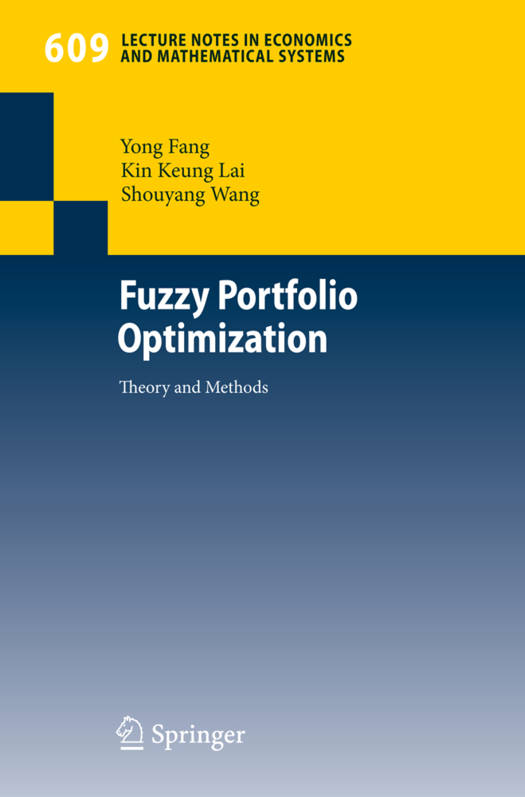
Bedankt voor het vertrouwen het afgelopen jaar! Om jou te bedanken bieden we GRATIS verzending (in België) aan op alles gedurende de hele maand januari.
- Afhalen na 1 uur in een winkel met voorraad
- Gratis thuislevering in België vanaf € 30
- Ruim aanbod met 7 miljoen producten
Bedankt voor het vertrouwen het afgelopen jaar! Om jou te bedanken bieden we GRATIS verzending (in België) aan op alles gedurende de hele maand januari.
- Afhalen na 1 uur in een winkel met voorraad
- Gratis thuislevering in België vanaf € 30
- Ruim aanbod met 7 miljoen producten
Zoeken
€ 111,95
+ 223 punten
Omschrijving
Most of the existing portfolio selection models are based on the probability theory. Though they often deal with the uncertainty via probabilistic - proaches, we have to mention that the probabilistic approaches only partly capture the reality. Some other techniques have also been applied to handle the uncertainty of the ?nancial markets, for instance, the fuzzy set theory [Zadeh (1965)]. In reality, many events with fuzziness are characterized by probabilistic approaches, although they are not random events. The fuzzy set theory has been widely used to solve many practical problems, including ?nancial risk management. By using fuzzy mathematical approaches, quan- tative analysis, qualitative analysis, the experts' knowledge and the investors' subjective opinions can be better integrated into a portfolio selection model. The contents of this book mainly comprise of the authors' research results for fuzzy portfolio selection problems in recent years. In addition, in the book, the authors will also introduce some other important progress in the ?eld of fuzzy portfolio optimization. Some fundamental issues and problems of po- folioselectionhavebeenstudiedsystematicallyandextensivelybytheauthors to apply fuzzy systems theory and optimization methods. A new framework for investment analysis is presented in this book. A series of portfolio sel- tion models are given and some of them might be more e?cient for practical applications. Some application examples are given to illustrate these models by using real data from the Chinese securities markets.
Specificaties
Betrokkenen
- Auteur(s):
- Uitgeverij:
Inhoud
- Aantal bladzijden:
- 176
- Taal:
- Engels
- Reeks:
- Reeksnummer:
- nr. 609
Eigenschappen
- Productcode (EAN):
- 9783540779254
- Verschijningsdatum:
- 7/05/2008
- Uitvoering:
- Paperback
- Formaat:
- Trade paperback (VS)
- Afmetingen:
- 156 mm x 234 mm
- Gewicht:
- 272 g

Alleen bij Standaard Boekhandel
+ 223 punten op je klantenkaart van Standaard Boekhandel
Beoordelingen
We publiceren alleen reviews die voldoen aan de voorwaarden voor reviews. Bekijk onze voorwaarden voor reviews.









